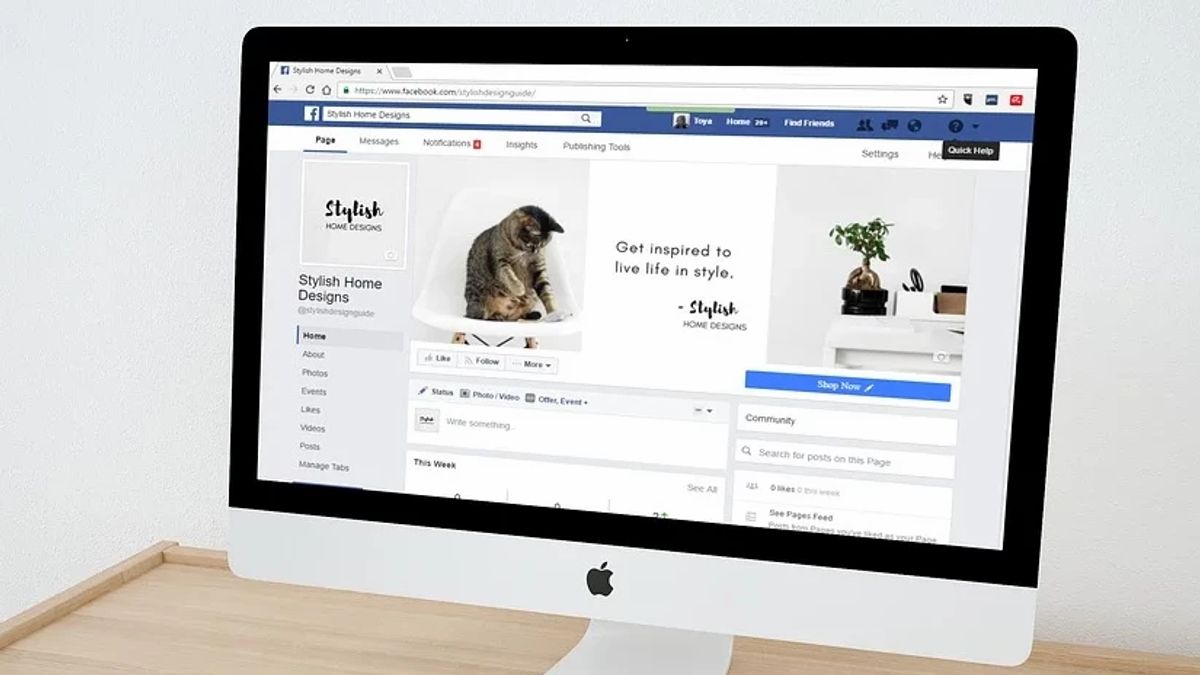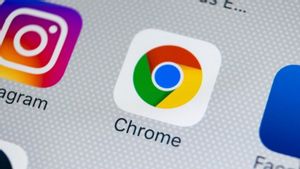JAKARTA - Facebook launched its Clubhouse-inspired live audio chat room feature earlier this year. They even paid influential artists and people up to USD 50.000 to make it popular.
The social media giant started “testing the water, in April when the New Product Experiments team launched an app called Hotline to capitalize on the craze of Clubhouse-driven live audio sessions.
However, the experiment failed to make any waves, similar to other experimental applications of the division in the past. Later that month, the company introduced no less than four audio-centric social features across the Facebook and Messenger platforms, one of which was Live Audio Rooms.
Facebook's popularity as a platform has waned, especially among a younger audience. Taking a leaf out of a rival platform's 'accelerator program' book, the company quickly formulated a plan to pay content creators, but didn't reveal exactly how much.
Now it seems that Facebook, now called Meta Platform Inc, is trying really hard to generate traction for Live Audio Rooms, given the size of the payments it is willing to pay to audio content creators.
According to a report by The Information, Facebook is willing to pay between $10.000 and $50.000 per session to celebrities and musicians. In recent weeks, production companies working for Facebook or Meta, have been looking for influential artists and personalities who can host Live Audio Rooms sessions on the platform by paying them hundreds of thousands of dollars for multiple sessions.
Salaries for hosting live audio chat sessions are even higher than those paid for short-form videos for Reels, which reportedly run up to $10.000 for influencers based on their popularity.
However, Facebook has not publicly disclosed these figures, unlike Clubhouse, which has an accelerator program running that it understands pays creators around $5.000 per month.
Facebook doesn't just pay artists to create content for the Live Audio Rooms platform over multiple sessions. The company reportedly wants to pay up to $10.000 to guests who appear at the event.
Of course, guests seem to have to be influential figures or people with influence in the music industry. It's pretty clear that Facebook is using the pile of cash it has to drive conversations around the Live Audio Rooms space.
SEE ALSO:
It's no secret that Facebook isn't very popular with teens interested in more 'hip' platforms like TikTok, Instagram, and Snapchat, but that's only one part of the problem. Facebook has courted much of the negative press for its lax stance on addressing hate speech and misinformation and has lagged far behind sister platform Instagram in offering features that appeal to a younger audience.
Facebook definitely has the money to attract top talent from music and other industries to expand the appeal of Live Audio Rooms. But before that can happen, companies also need to put in place content moderation and appropriate reporting tools so that their live audio chat rooms don't become another avenue for spreading hate, misinformation, and disturbing discourse.
Instagram itself has reportedly proven to be a “toxic hell” scene for teens, and adopting a similarly reckless attitude towards monitoring real-time audio conversations is unlikely to end well.
Yes, Facebook has the power to surpass Clubhouse with all its resources and expertise, but doing so at the expense of platform security can backfire when embarking on a dollar quest to dominate the market.
The English, Chinese, Japanese, Arabic, and French versions are automatically generated by the AI. So there may still be inaccuracies in translating, please always see Indonesian as our main language. (system supported by DigitalSiber.id)
















